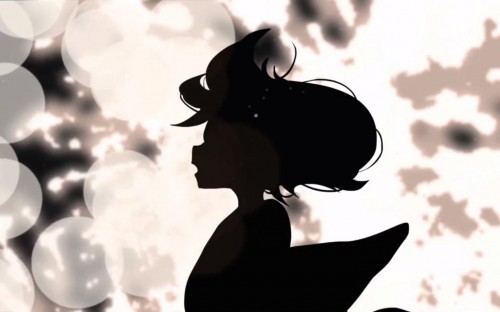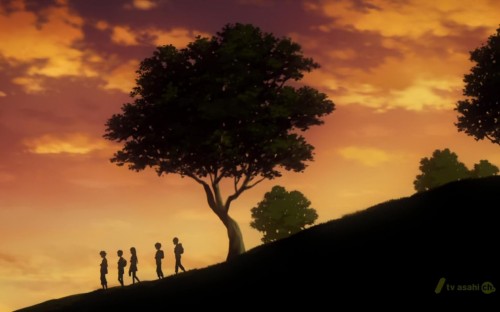Many of us are optimists and like to think there’s an innate sense of goodness within us all, but given a God’s power, how would we react? Shin Sekai Yori (From the New World) answers that question within its first 3 minutes: upon the discovery of psychokinesis, civilisation regresses into a thousand year-long dark age, where Man is subjugated by an immense, supernatural power.
One such power, the Emperor of Great Joy, marks his coronation by burning to death the first 500 people to stop clapping. It’s said they clapped for 3 days and nights.
To quote Shin Sekai Yori’s author, Yūsuke Kishi, on the genesis of his story:
It came to me after I read the book, On Aggression, published in 1970 by Australian ethologist Roland Lorenz. In his book he wrote that because humans were weak creatures to begin with, the checks against intraspecies aggression were also very weak.

We are damned, then. Or, at least, that’s how the series begins. The balance of power shifts heavily in favour of a certain few and they take a full and bloody advantage. Morality, it seems, is relative, but as pessimistic as that sounds, the idea that Man is, to his core, an aggressive animal, informs everything about Shin Sekai Yori. When its main story starts, we assume that the so-called dark age is over, but what’s clear from the first episode on, is that something’s gone badly awry.
There’s a palpable air of paranoia about the village in which it’s initially set, where children with telekinetic powers are being brought up to believe in all kinds of tall tales. Stray beyond the village’s boundaries and be attacked by roving monsters; allow yourself to be consumed by selfish desire and become a demonic fiend. At the end of both, the hero chooses suicide.
Later, in the village itself, one of the children cheats at an apparently innocent-looking game by using his psychic powers. He’s removed from class, never to be seen again. The implication is that he was killed for abusing his power: the school is being used to screen for any potentially bad Gods.

Shin Sekai Yori’s ultimate solution to preventing society’s collapse is not a romantic one: if Man is fundamentally destructive, then he’s broken. The only fix is to change his DNA, to modify the very fabric of his being, and the sad fact of the matter is that it’s hard to argue against that point of view.
To let such an overwhelming power roam free is to condemn one’s self to the whims of another, and yet, to see these children realise the truth for themselves, to see them fight, and understand what it means to love and experience a life of colour, and vibrancy and feeling. It raises important questions.
Is there any point in striving for such an empty peace? Why the need to see the world through unfiltered eyes, if that same lack of filter is what dooms us to an endless cycle of violence? There is no easy answer, every one laden with painful memories, happy and sad, of times past.
What a difficult, brilliant series this is, then, filled with such disparate, fleeting images of horrific violence and sparkling beauty.

Leave a Reply